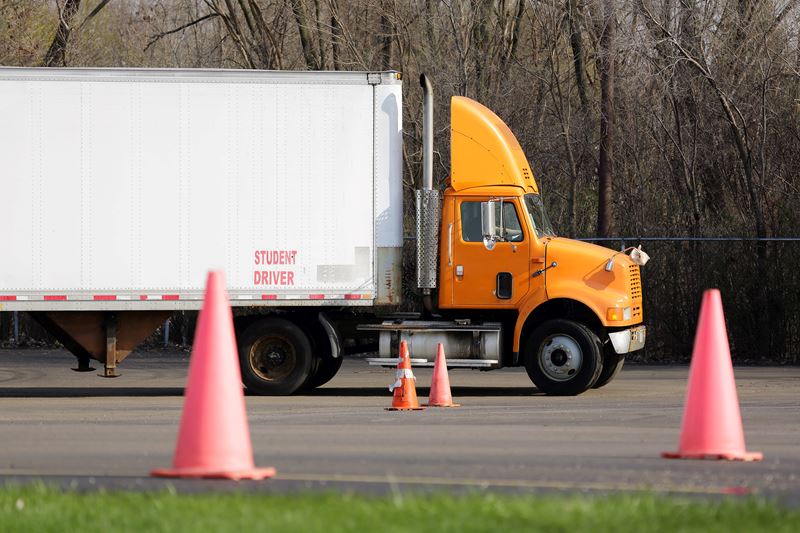The importance of pre-hire road tests
The importance of pre-hire road tests
When hiring new drivers, applicants with years of trucking experience can look great on paper. However, regardless of a candidate’s work history, it’s crucial for fleet owners and operators to conduct a pre-hire road test to ensure the driver’s skills and professionalism are up to speed.
“Obviously, you want to make sure the candidate can drive the vehicle, but the operative phrase here is ‘‘in an appropriate manner,” says Kevin Dutchak, Risk Specialist, Commercial Auto at Sovereign Insurance. “Operators may not think they need to conduct pre-hire road tests because they only hire very experienced drivers. The problem with that is the majority of collisions don’t occur because of issues with driving skills. The majority of loss events are due to risky driving behaviours.”
Those issues can be anything from driving faster than appropriate for road and weather conditions, to being distracted by things like texting or eating, to aggressive driving due to frustration with another driver on the road. “Even if the candidate has 20 years of experience, that doesn’t mean they’re a safe, prudent driver,” says Kevin. “While you do assess skills in a pre-road test, you’re also checking for any behavioural red flags.”
How are drivers put to the test?
A pre-hire road test typically includes the following evaluation areas:
- Pre-trip inspection, including: general condition of the vehicle, steering mechanism, condition of tires, lighting devices and reflectors, horn and windshield wipers, emergency equipment, and more.
- Coupling and uncoupling procedures, including: connects air brake and electrical lines, charges trailer brakes, backs up slowly, visually checks for proper coupling of tractor fifth wheel to trailer kingpin, including performing a tug test, and more.
- Placing the vehicle in operation, including: uses seat belt, starts vehicle properly, tests operation of air brake system, checks traffic and weather conditions prior to leaving terminal, and more.
- Overall driving skills and behaviours, including: checks in all directions for traffic conditions, checks mirrors frequently, shifts gears properly, uses signals properly and well in advance, makes sure vehicle is in the proper lane for turning, stays within the speed limit, only passes in a safe location, doesn’t allow vehicle to roll when stopped, and more.
It may also be necessary to evaluate additional company-specific criteria. “Previous experience does not necessarily mean the driver has the appropriate experience and behaviours for the job they’re applying for,” notes Kevin. For example, a driver’s previous employment may have involved unloading containers at the local port and they were never required to back up a tractor-trailer into a dock. So, it’s not reasonable to assume the driver will automatically be able to perform that maneuver.
Ideally, a pre-hire test should be a minimum of two hours to ensure all areas are covered. It should also be conducted in conditions and/or on roadways that are similar to what the prospective job will entail. “Whether they’re going to be driving in heavy traffic, or two-lane highways in rural traffic, part of the pre-hire road test should include those types of road conditions,” says Kevin.
As the test goes along, the evaluator fills out a checklist or scoring sheet. It’s up to each company how detailed the test is, as well how it’s graded and weighted. When the test is done and the evaluation form is complete, both the evaluator and the driver should sign the document.
Ultimately, the aim of a pre-hire road test is to help fleet owners and operators screen candidates and keep their employees, customers and the general public safe. While safety is the top priority, there are financial and reputational risks that can be mitigated by conducting pre-hire road tests. For example, carriers questioning the time or resources required to carry out a pre-hire road test should consider the cost of the equipment the new hire will be responsible for. With tractor-trailers costing well into the six figures, it’s worth the investment to ensure they’re hiring the right drivers.
In addition, a driver that racks up fines and violations can lead to a poor carrier profile, which can impact the business. “You may have clients or potential clients who request a copy of your carrier profile, and if you have a high violation rate, they may decide to take their business elsewhere,” says Kevin. “It all ties back to the quality of the drivers that you’re hiring.”



